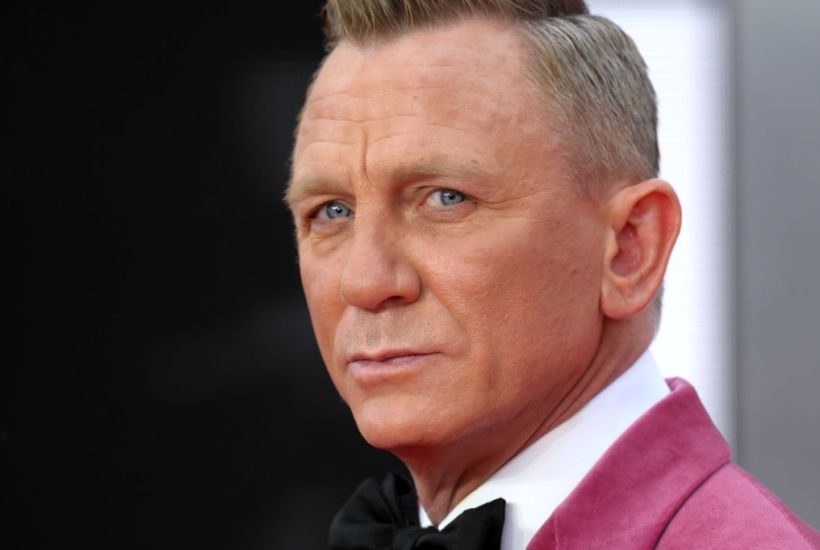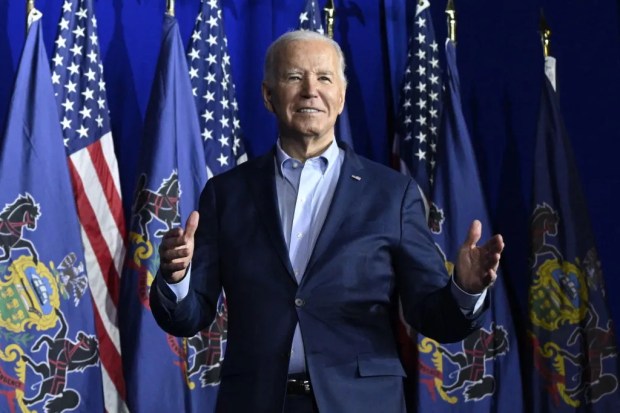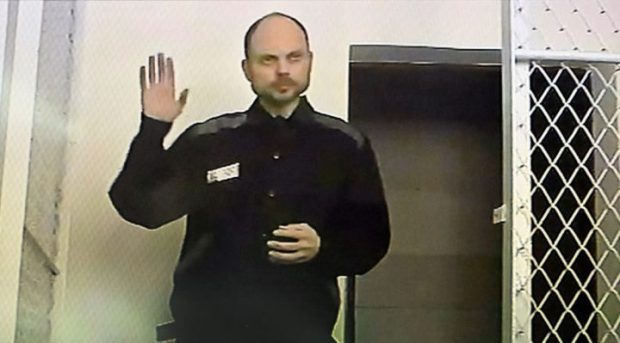I saw the new James Bond last night, but after reading today’s reviews I’m not sure I watched the same film as the critics. Perhaps the glitz of the Royal Albert Hall and proximity to the stars make reviewers better disposed towards a film. Those of us watching in the Odeon, Leicester Square, eating Joe and Seph’s 007 Dry Martini popcorn (transmuted into caramel coating with five per cent vodka) were perhaps less carried away.
The Bond of No Time to Die is, you’ll have gathered, terrifically in touch with his emotions. He’s got a vulnerable side; he’s angry and wounded; he’s empathetically good with a little girl (he feeds her apple slices); he’s respectful of his fellow (sometime replacement) 00, Nomi, played by Lashana Lynch; he’s manly enough not to mind getting wistful about the little girl’s knitted rabbit; he’s monogamous, not promiscuous.
Trouble is, he’s not much like Bond, books or films. The original Bond character – as imagined by Ian Fleming and played by Sean Connery – seems to have been killed off, replaced by a very different character. One without a sense of humour, for a start.
No Time To Die is short on gags – Q (played by the excellent Ben Whishaw) apart – though there are a few gags (‘mindblowing!’ about a clever watch), presumably provided by Phoebe Waller Bridge, and the adorable novice sidekick in itsy evening dress who turns out to be invulnerable and deadly is quite funny.
The overall effect is downbeat, depressed, dispiriting and that’s even before the finale. Bond does put on evening dress for a birthday treat for Spectre in Cuba, but most of the time he’s unshaven, unkempt in a rugged way, ageing, confused about his allegiances and never omniscient about arcane aspects of the job, because omniscience is old masculinity. You part company with Bond in most of the films with a smile; at the end of NTTD, you’re as depressed as he is. Even the theme tune doesn’t go anywhere.
It’s always interesting to see who the villains are in Bond. In the Cold War original, obviously, you got the Russians and SMERSH; later Fleming posited instead Spectre, an organisation detested by both powers, a non-state actor, private enterprise for private profit – deplorable but comprehensible.
But Lyutsifer (Lucifer?) Safin here (Rami Malek), who you know is a villain on account of his bad complexion (give it time before people with pockmarks start to complain), is driven by motives of personal revenge, so just a non-ideological nutter. There are some obviously problematic global players out there right now – can anyone possibly think why Barbara Broccoli might not care to identify China as a threat? – but this Bond is out to save the world from a danger who is oddly atemporal. I’m not entirely sure how Safin manages to make a Dr No style fortune, but I may have missed it.
Compare and contrast with the first time we meet James Bond in Casino Royale. In repose, his features are a taciturn mask, ‘Ironical, brutal and cruel’. He’s enormously finicky about his car (his only personal hobby), he takes ‘a ridiculous pleasure in what I eat and drink…very pernickety and old maidish’ – and to an extent, his dress and certainly his gambling. (Craig couldn’t care less about his food and drink.)
He’s no feminist – he sees ‘luck as a woman, to be softly wooed or brutally ravaged, never pandered to or pursued’. He’s bored with most women and the predictable pattern of affairs, but he can fall in love with someone who’s intriguing and intelligent. He is a man of the world, the world being of its time.
Same again with the best of the films. Bond can commit – with George Lazenby’s On Her Majesty’s Secret Service he actually gets married and is heartbroken when you know what happens – and he mourns, eventually, the treacherous Vesper Lynd, but he never really lets himself go; he’s not one for emoting. He’s never afraid to show off his expertise; it’s one-upmanship in everything from haikus to voodoo. Savoir faire is his thing. And in the best of the films, he is funny – the Sean Connery gags, the Roger Moore raised eyebrow. Ian Fleming thought Connery was common; he’d have been just baffled by Craig.
Obviously there are many good things in No Time To Die, not least the references to other Bond films. Daniel Craig enters into the convoluted plot and the preposterous showdown with gusto. There’s a nice car chase, barging right through a very retro procession with a statue of the Virgin Mary, in the old style. There’s a very creepy opening episode featuring a man in a mask. There’s fabulous cinematography and dizzying scene changes.
But the upshot – Bond for the 21st century – is not a mutation of the original bond. It’s a new actor, a new character and one that (I’m afraid to say) is far less interesting to watch.
Got something to add? Join the discussion and comment below.
Get 10 issues for just $10
Subscribe to The Spectator Australia today for the next 10 magazine issues, plus full online access, for just $10.



















Comments
Don't miss out
Join the conversation with other Spectator Australia readers. Subscribe to leave a comment.
SUBSCRIBEAlready a subscriber? Log in